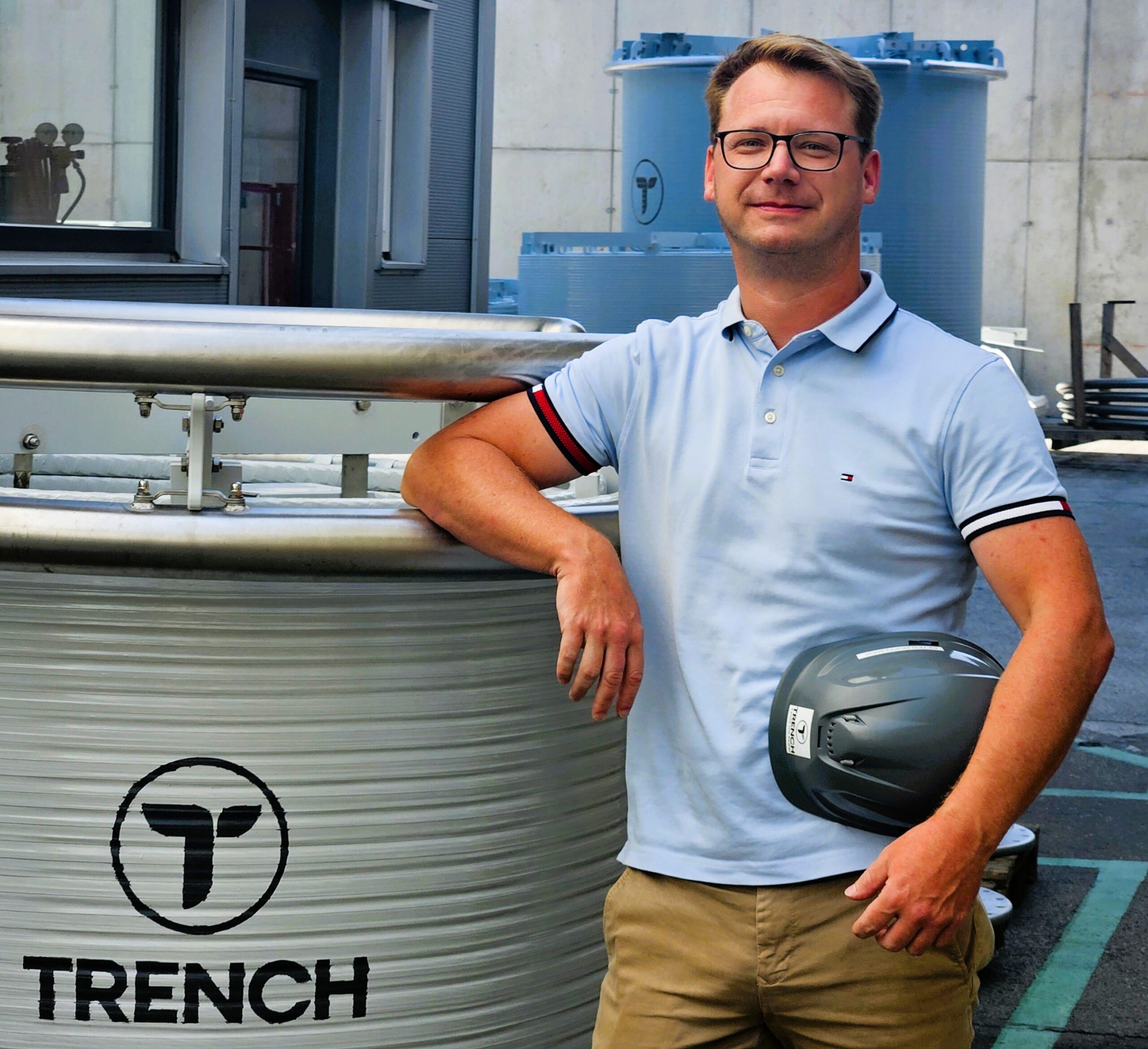CTO SERIES
True Tech
True Tech Series: interview with Peter Dopplmair, CTO Trench Group
"We don't just think individiual products, but the entire system".

Why is network security becoming increasingly important in Europe in particular – and where do Trench products come into play?
Peter Dopplmair: We are amid a huge transformation: decarbonization, digitalization, expansion of renewable energies, electromobility—all of this is putting more strain on our grids than ever before. At the same time, power sources are becoming more decentralized and volatile. To ensure that the grid remains stable, modern technology is needed: coils that stabilize the grid or bushings that can withstand enormous electrical loads, both continuously and for short periods. Without stable transmission paths, the energy transition will not work. In our industry, we therefore like to say “no transition without transmission” – in simple terms: without a suitable grid, there can be no energy transition.
How do these components work together in the system to ensure grid security?
Peter Dopplmair: You can think of it like a well-coordinated orchestra. The bushing ensures that the electricity reaches the transformer safely – this component is one of the most electrically stressed components in a substation. The instrument transformers precisely monitor and control the energy flows. And the coils intervene where current peaks or grid fluctuations occur – especially in applications with renewable energies or power electronic components.
Grids are becoming increasingly digital, aging, and expanding, which brings new opportunities but also new risks—such as cyberattacks.
Where do you see grid security heading in the next few years?
Peter Dopplmair: Its importance will continue to grow. Grids are becoming increasingly digital, aging, and expanding, which brings new opportunities but also new risks—such as cyberattacks. That’s why many grid operators are investing heavily in monitoring and condition-based maintenance. At Trench, we are already working on digital twins and sensor solutions to detect at an early stage when components are aging or could fail.
As CTO, what would you like to see from politicians or society to ensure that Europe’s power supply remains secure in the future?
Peter Dopplmair: I would like to see more foresight from politicians. Many infrastructure decisions take years or decades, and politicians often only think in terms of legislative periods. Grid expansion is central to the energy transition—we need faster approval procedures to speed up grid expansion.
I also see a problem with innovation. It must be allowed, even if there is no second provider at the outset. Otherwise, we will slow ourselves down. In Europe, technology is often only approved once there are at least two providers for it. However, this means that new developments are not used because there is only one provider for the innovation. It would be better for technological progress if an innovation created a market. Currently, innovation is being slowed down or those who have initiated the innovation are being prevented from entering the market.
And socially?
Peter Dopplmair: There needs to be greater awareness among the population of how important electricity is for our daily lives. Electricity is not something that can be taken for granted. Everyone should understand what it means for the economy when a grid fails—and how much expertise, planning, and high-tech is behind ensuring that this does not happen. But the responsibility for communicating this clearly lies with manufacturers like us, energy suppliers, and politicians. Basically, we in Europe are very well prepared for scenarios such as blackouts. Every energy supplier has so-called grid restoration plans that can be activated within a very short time in coordination with the European network ENTSO-E, so that even large-scale outages, such as those in Spain, can be remedied within a few hours.


